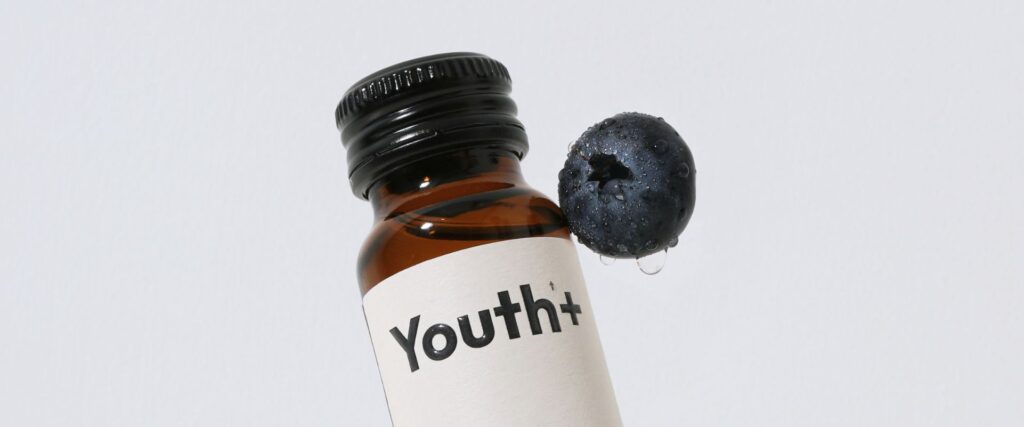Yüth™ is a patent-pending spermidine from Compound Solutions Inc. that has quickly gained recognition for its exceptional purity, efficacy, and safety. As a product designed with the highest standards in mind, Yüth™ is made in the United States and adheres to Good Manufacturing Practices (GMP), ensuring that each batch meets stringent quality control requirements. Yüth™ also undergoes rigorous third-party testing, offering an additional layer of confidence that it is both safe and effective.
The Science Behind Yüth™
Spermidine is a polyamine compound that plays a crucial role in cellular health, particularly in the process of autophagy, where cells remove damaged components and recycle their contents. This process is vital for maintaining cellular function and longevity, making spermidine an important molecule for healthy aging. However, not all spermidines are created equal. Its potency and quality are critical factors that determine the effectiveness.
Yüth™ distinguishes itself by delivering a potent dose of high-quality spermidine, optimized to support your body’s natural autophagy process. This process not only aids in the removal of damaged cellular components but also promotes overall cellular health, which is essential for longevity. By choosing Yüth™, you’re not just getting any spermidine supplement—you’re investing in a product that has been meticulously crafted to provide the best possible results.
Promoting Cellular Health and Longevity
The benefits of Yüth™ extend beyond just providing a high-quality source of spermidine. By supporting autophagy, Yüth™ helps to maintain cellular health, which is foundational for longevity. As cells age, their ability to remove damaged components diminishes, leading to the accumulation of cellular debris that can impair function. Spermidine, particularly in the potent form provided by Yüth™, helps to counteract this process, promoting healthier aging at the cellular level.
Bringing Yüth™ to You
Spermidine is naturally found in certain foods like mushrooms, legumes, and specific types of cheese. However, the spermidine content in these foods can vary significantly depending on factors like processing and preparation. To consistently optimize spermidine intake, supplements provide a more reliable and potent solution.
Recognizing the need for high-quality spermidine supplementation, BIGVITA partnered with Compound Solutions Inc. Driven by a shared dedication to innovation, health, and quality, BIGVITA launches its first product featuring Yüth™—a ready-to-drink supplement called “Youth +.” This advanced formulation combines spermidine, NAD+, and L-Ergothione to support healthy aging, enhance brain function, and promote youthful skin and hair. The synergy between BIGVITA’s expertise in modern health solutions and Compound Solutions Inc.’s leadership in nutraceutical ingredients results in unique formulations to tackle common aging concerns effectively As their partnership evolves, more Yüth™-based products are expected to emerge, marking a bright future.
Yüth™ sets the standard for spermidine supplementation. Its commitment to purity, safety, and efficacy makes it a standout ingredient, one that BIGVITA proudly includes in its products. Youth + represents the start of a powerful collaboration between these two innovators, delivering the proven benefits of Yüth™ to promote cellular health and longevity.
_________
References
- Madeo, F., Eisenberg, T., Pietrocola, F., & Kroemer, G. (2018). Spermidine in health and disease. Science, 359(6374), eaan2788.
- Eisenberg, T., Knauer, H., Schauer, A., Büttner, S., Ruckenstuhl, C., Carmona-Gutierrez, D., … & Madeo, F. (2009). Induction of autophagy by spermidine promotes longevity. Nature Cell Biology, 11(11), 1305-1314.
- Williams, R. S., & Klionsky, D. J. (2021). The science of autophagy: An overview. Autophagy, 17(1), 1-32.
- Green, D. R., & Levine, B. (2014). To be or not to be? How selective autophagy and cell death govern cell fate. Cell, 157(1), 65-75.
- Kroemer, G., Mariño, G., & Levine, B. (2010). Autophagy and the integrated stress response. Molecular Cell, 40(2), 280-293.




